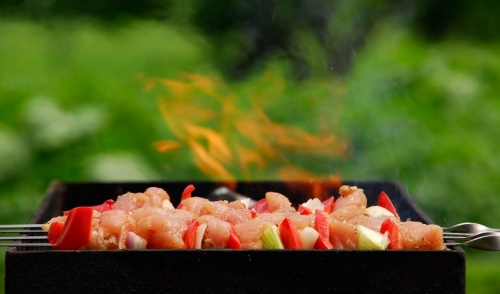
The Differences between Charcoal and Gas Grills
People who love to grill will often tell you their opinion on whether they think gas or charcoal grills are better for cooking up those burgers and bratwurst. Below we’ve included some good points for both sides of the debate, so you can decide which suits your needs best:
Charcoal
There are many people that swear that using a charcoal gives meat a better flavor than a normal gas grill. However, if you believe that’s true, it will come with a little hard work. Regulating the temperature is probably the trickiest part of using charcoal. If left sitting too long, the charcoal may not be hot enough anymore to cook your food properly. The big draw for charcoal is that when the temperature is right, there’s no substitute for the dry, searing heat that coals can provide. Such high temperatures can sear juices in and create a perfectly crisp outer layer to your bar-b-que fare. Charcoal grills are also typically less expenseve than their gas counterparts –but bear in mind that this can be offset by the cost of coals over time.
Gas
While some people may argue that they don’t provide the same taste, there is no debate that gas grills are much easier to start and regulate. All it takes is the push of a button and the turn of a knob to get the heat level to what you want. As far as the taste, it is possible to add hardwood chips that can give a similar smoky taste like charcoal does. Another positive, is the amount of grilling space. Many gas grills come with another rack level instead of the single level that charcoal grills provide.
However, gas grills also have their setbacks. There is usually a higher cost associated with gas grilling because of getting your propane tank refilled. You should also be sure to always check the grill for any gas leaks. Propane has a very distinct smell so you should be able to detect it.

